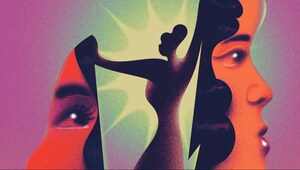Hypersomnia Could Be the Reason You're Waking Up Tired After a Long Sleep
There is such a thing as too much sleep.

When it comes to how much sleep you need every night to wake up feeling refreshed, I was led to believe that adults required anywhere between 6 - 8 hours. So why is it, then, that you can get that much sleep (and then some), and still have to prize your eyes open in the mornings? According to sleep expert Dr Nerina Ramlakhan, it might be because you're getting too much sleep - and the condition has got a name: hypersomnia.
Benenox Overnight Recharge's sleep expert, Dr Ramlakhan, explains that hypersomnia can cause "excessive sleepiness". Additionally, sufferers of hypersomnia "may struggle to wake up in the morning, feel anxious and lose their ability to think straight."
The confusing thing about hypersomnia is that it can occur even if you think you’ve had a good night’s sleep, or slept for a long period of time. "However, it’s important to remember that getting a good night's sleep isn't just about getting 7 or 8 hours of sleep," notes Dr Ramlakhan. "It's also about good, high quality, deep sleep." Quality, not quantity, remember.
Often, people who oversleep might think that they are a good sleeper, but Dr Ramlakhan points out that "oversleeping can also be a problem and can cause serious accidents and work-related injuries.
"Often the hypersomniac is somewhat obsessed about needing to get more sleep when in fact lack of sleep really isn't the cause of their tiredness," she explains.
What causes hypersomnia?
The sleep expert explains the condition can be caused by various factors, including:
- Thyroid issues, particularly hypothyroidism (underactive thyroid)
- Chronic pain which causes poor quality, shallow sleep
- Breathing difficulties, which lead to poor quality sleep. These include sleep apnoea, snoring and nocturnal asthma
- Shift-work. The natural circadian rhythm becomes disrupted which affects the sleep cycle
- Overwork and burnout
- Medication. Certain drugs such as sleeping tablets, antidepressants, antihistamines can affect sleep quality and sleep patterns
- Poor lifestyle. Not eating healthily, lack of exercise, excessive caffeine and alcohol in the long term can all lead to mood and weight changes which cause more fatigue
- Becoming a parent. Chronic broken sleep can cause hypersomnia and excessive daytime sleepiness
- Mental health problems such as anxiety and depression can cause broken and poor quality sleep
- When an individual's life is lacking in purpose and meaning. They literally don't want to get out of bed to face their life and when they do they make poor lifestyle choices, like eating badly and not exercising. What they might need is not a sleep therapist but a career or life coach. At the end of the day, we all need a reason to get out of bed in the morning.
How can you get out of the cycle of oversleeping?
Thankfully, Dr Ramlakhan reassures us that hypersomnia "is something that you can work on." She suggests tweaking your lifestyle if you identify the cause from the list above, and seeking advice from your GP or a sleep specialist if you think you may be suffering.
more from Life

How to build emotional intimacy with your partner

Sex tips to keep in mind during this Mercury Retrograde

What is intuitive eating and how is it different from other diets?

What the first trip with your partner says about your relationship

Lessons that my string of unhealthy relationships taught me

Everything you need to know about the "Who is Your Chicago?" trend

#AskTheTherapist: ‘Should I break ties with my toxic sister?’

8 vanilla-infused beauty products for summer

#AllEyesOnB: Beauty launches on our radar this April

Signs that you’re a bad packer on your holidays and how to avoid them
